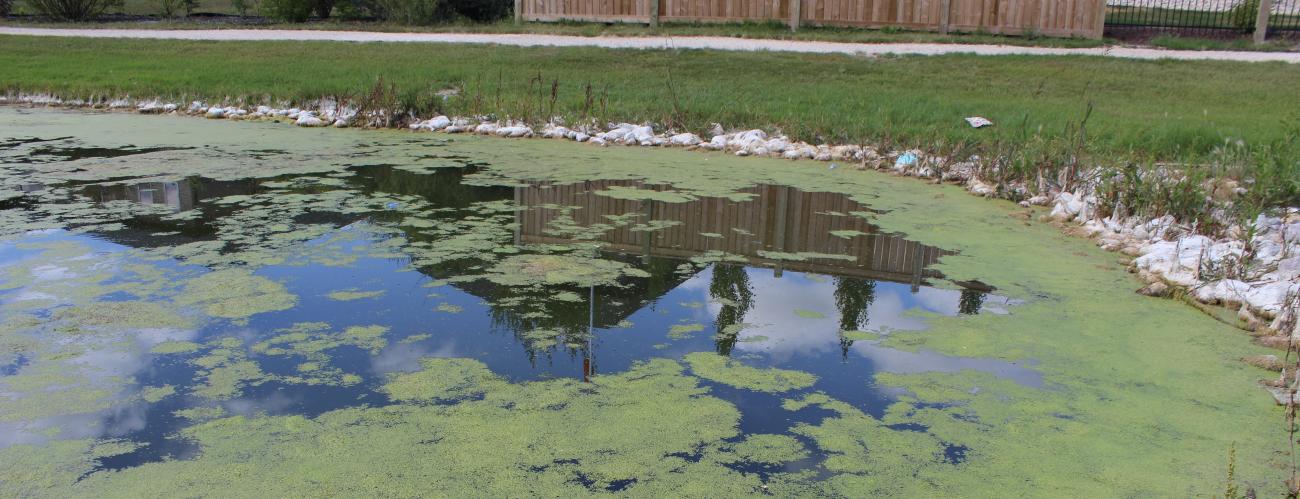Many Niverville residents enjoy backyard views of idyllic lakes—idyllic, that is, until those lakes develop a thick moss-green blanket. Hot, dry summers like the current one provide the perfect climate for this kind of growth, and residents of Fifth Avenue Estates and The Highlands have grown concerned.
To the untrained eye, the lakes appear to be covered in algae, and when it’s the blue-green variety such algae can be extremely hazardous to pets and wildlife.
But Niverville CAO Eric King says they’ve consulted with environmental experts and the growth is, in fact, a plant called duckweed. This summer has produced the ideal conditions for duckweed growth, and its spread hasn’t been exclusive to Niverville.
“We’re going to be testing a chemical that has had positive results and doesn’t have environmental impacts,” says King. “It affects only the duckweed.”
But he adds that some environmental groups have warned that killing the duckweed could introduce the dreaded blue-green algae, so the town needs to exercise caution.
Duckweed is a flowering aquatic plant which floats on or just beneath the surface of still or slow-moving bodies of water. Once it gets started, it can double in size in just one to two days.
While it looks similar to algae from a distance, its effect on the environment is actually the opposite. In some places, the growth of duckweed is encouraged for its many benefits. For example, it acts as a natural water filter, effectively absorbing chemicals and runoff from intensive farming.
The plant also acts as a mosquito deterrent, preventing the insect from laying eggs on the water’s surface. In countries that see high levels of malaria, yellow fever, dengue fever, and the Zika virus—diseases all spread by mosquitos—duckweed is considered to be a natural defense.
Duckweed is also a completely safe and protein-rich food source for fish, wildlife, and even pets and humans. Fish farms around the world have taken note of the benefits of growing duckweed for this reason.
Finally, and perhaps most important, because of its dense surface cover duckweed actually works to prevent the growth of algae.
King says that town staff have been looking at a variety of different treatment options over the past year. While the idea of bulrushes was effective in the decommissioned lagoon, King says there has been public pushback over its use in residential areas since bulrushes may provide the right environment for mouse and vole nests and mosquito proliferation.
“There’s no perfect scenario,” King says. “You’re always going to have some issues. [We could use] biochemicals and make [the lakes] sterile, but… I don’t think we want to go there.”
Since duckweed doesn’t pose a public threat, King asks residents to be patient.
“No one’s getting the answer they want in the time they want it, but we want to make sure that we do it right,” says King.


